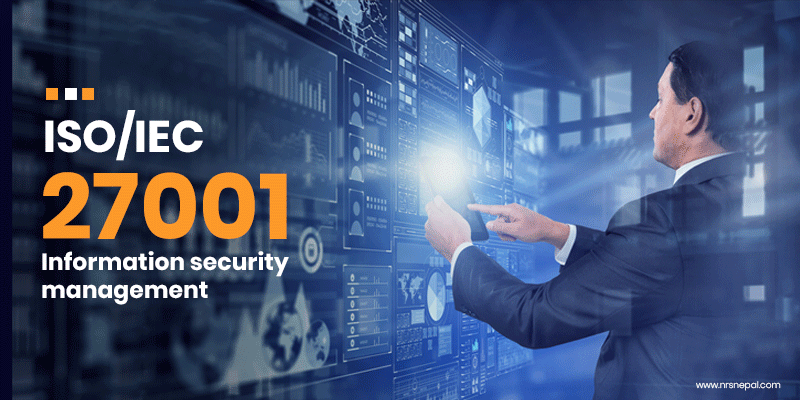
ISO 27001:2013 is an international standard that establishes a framework for Information Security Management Systems (ISMS) to ensure information confidentiality, integrity, and availability while also adhering to legal requirements. ISO 27001 accreditation is necessary for safeguarding your most valuable assets, such as employee and client data, brand image, and other confidential information. The ISO standard specifies a process-based method to establishing, implementing, operating, and maintaining an ISMS.
Customer and legal requirements such as the GDPR, as well as potential security concerns such as cybercrime, personal data breaches, vandalism / terrorism, fire / damage, misuse, theft, and viral attacks, can all be addressed with ISO 27001 implementation. Obtaining approved ISO 27001 certification demonstrates that your firm is committed to implementing information security best practices. Furthermore, ISO 27001 accreditation provides you with an expert assessment of whether your company's data is sufficiently protected.
What are the benefits of ISO 27001 certification?
Achieving ISO 27001 certification shows that a business has:
• Preventing unauthorized access to information
• Ensuring that information is accurate and can only be modified by authorized users
• Assessed the risks and mitigated the consequences of a breach.
• Independently evaluated against an international standard based on industry best practices.
ISO 27001 certification shows that you have identified the risks, assessed the implications, and implemented systemized controls to limit any damage to the organization.
Benefits include:
• Increased company resilience
• Alignment with customer objectives
• Improved management processes and integration with corporate risk strategy
• Increased customer and business partner confidence
Process stages
The stages need to go through to protect the business and achieve ISO 27001 include:
• Assessing possible threats to your organization and identifying weak areas are just a few of the processes you'll need to go through to protect your company and get ISO 27001 certification.
• Using a management system that spans the entire organization will aid in controlling how and where data is saved and used.
• Managing current and future information security policies through a process.
• Educating employees and third-party contractors about the hazards and reporting incidents.
• Keeping track of system activity and logging user actions.
• Maintaining IT systems with the most up-to-date security.
• Control of system access.
How to Become ISO 27001 Certified
Any organization that chooses or is compelled to formalize and improve business processes around the security of its information assets can obtain ISO 27001 certification.
Receiving ISO 27001 certification is a multi-year process that necessitates extensive participation from both internal and external stakeholders. It's not as straightforward as filling out a checklist and submitting it for approval. You must ensure that your ISMS is completely developed and covers all potential areas of technological risk before even considering asking for certification. The ISO 27001 certification procedure is divided into three stages:
1. The company employs a certification body, which conducts a basic evaluation of the ISMS to identify the key types of documentation.
2. The certification authority conducts a more in-depth assessment, comparing individual ISO 27001 components to the organization's ISMS. Evidence that policies and procedures are being followed correctly is required. The lead auditor is in charge of determining whether or not the certification has been earned.
3. The certifying body and the organization organize follow-up audits to verify compliance is maintained.